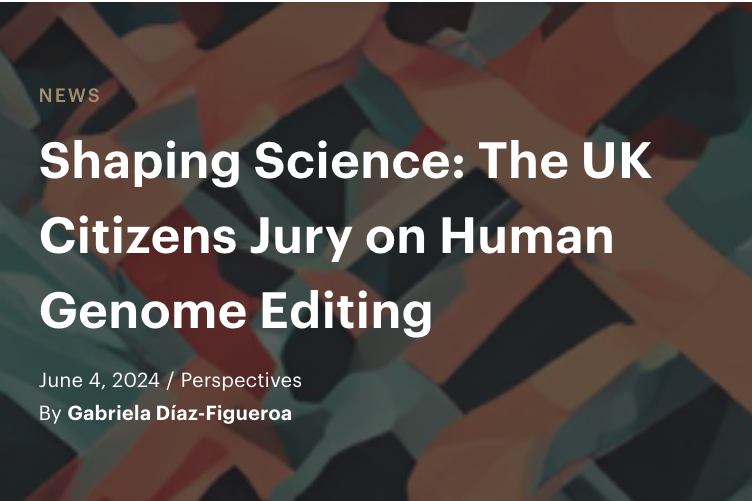About the Seminar
Are there any circumstances under which the United Kingdom’s government should consider changing the law to allow intentional genome editing of human embryos for serious genetic conditions?
British parliamentarians will debate this question when the Human Fertilisation and Embryology Act is renewed. Professor Middleton organized a citizen’s jury to consider this issue.
On the plane home from Hong Kong, immediately after scientist He Jiankui announced he had delivered the first germline editing, Professor Middleton started to design the UK Citizens’ Jury on embryo editing. The aim was to provide an insight into the perspectives of patients with inherited genetic conditions on what they think about the benefits, risks and wider harms emerging from the application of embryo genome editing. After four days of in-depth deliberation, exploring the meaning of ‘serious’ inherited disease, eugenics and the practicalities of clinical application, the ‘juror’s wrote a 50 page policy report and we made a documentary film which captured their voices so that these would be available when the UK government begins discussions.
In the seminar, a 10-minute documentary about the citizens’ jury process is shown—a film that has won 7 film festival awards and a project that has been awarded the Vice Chancellor’s award for public engagement and impact at the University of Cambridge. Professor Middleton discusses different methods for public engagement and provides an overview of the impact of the Citizens’ Jury in the UK.
This seminar was co-hosted by the Innovative Genomics Institute and the UC Berkeley Kavli Center for Ethics, Science, and the Public
About the Speaker
PROFESSOR ANNA MIDDLETON is the Director of the Kavli Centre for Ethics, Science, and the Public at the University of Cambridge, UK. She leads a team of social scientists and engagement experts who deliver quantitative and qualitative research to explore how to connect discovery scientists to diverse public audiences to deliberate on the ethical issues raised by cutting-edge science. As an expert in psychology and public engagement, she is particularly interested in creative methods to inspire dialogue that will have an impact on both science and society. She also leads the ethics research and public engagement within the Sanger Institute in Cambridge, one of the world’s largest single-site genomics research campuses. Professor Middleton uses her experience as a registered genetic counsellor to create the conditions for meaningful public and scientific dialogue. She has also produced numerous films on the ethics of science that have received recognition at international film festivals.


